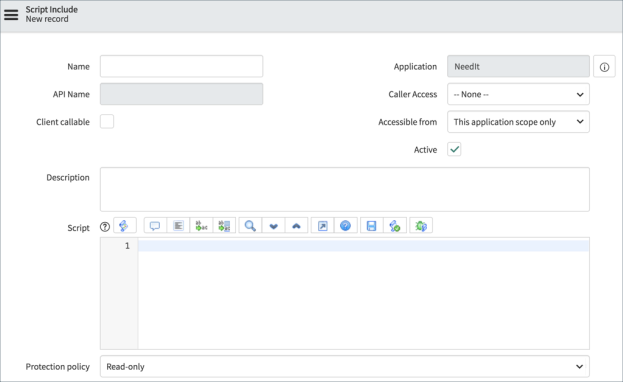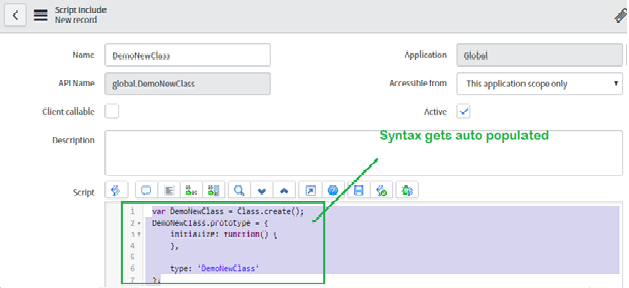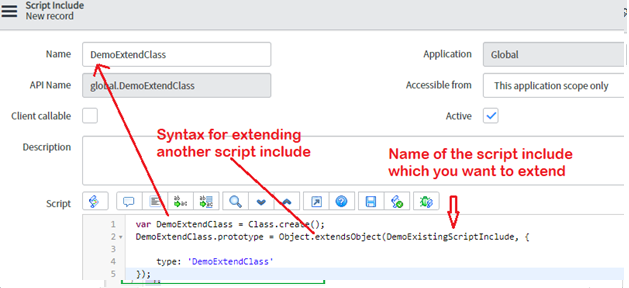Mastering Script Includes in ServiceNow
In the world of ServiceNow development, efficiency and scalability are paramount. Whether you’re a seasoned developer or just dipping your toes into the realm of ServiceNow, understanding the power of Script Includes is crucial. Script Includes offer a centralized and reusable way to encapsulate business logic, making your code more modular, maintainable, and easier to debug. In this blog post, we’ll explore what Script Includes are, why they’re essential, and how you can harness their power to enhance your ServiceNow development experience.
What is Script Includes?
Script Includes are server-side JavaScript objects in the ServiceNow platform that encapsulate reusable server-side logic. They allow you to define functions and variables that can be accessed and reused across various scripts, such as Business Rules, Client Scripts, UI Policies, and more. Script Includes promote code reuse, reduce redundancy, and improve maintainability by centralizing common logic in a single location.


Why are Script Includes Essential?
- Modularity: Script Includes promote modular development by separating concerns. You can encapsulate related logic within a Script Include, making it easier to manage and maintain.
- Reusability: Once defined, Script Includes can be reused across multiple scripts and applications within your ServiceNow instance. This reduces duplication of code and promotes consistency across your development projects.
- Centralization: By centralizing common logic within Script Includes, you establish a single source of truth for your business rules and functions. This simplifies maintenance and ensures consistency throughout your application.
- Testability: Script Includes facilitate unit testing by isolating logic into modular components. This allows for easier testing of individual functions and promotes overall code quality.
How to Harness the Power of Script Includes
- Create a Script Include: To create a new Script Include, navigate to System Definition > Script Includes and click on New. Give your Script Include a name, description, and define the server-side JavaScript code containing your reusable logic.
- Define Functions and Variables: Within your Script Include, define the functions and variables that encapsulate your reusable logic. Consider the scope of each function and variable carefully to ensure they’re accessible where needed.
- Reuse in Scripts: Once your Script Include is created, you can reference its functions and variables in other server-side scripts, such as Business Rules, Script Actions, and Scheduled Jobs. Simply use var myScriptInclude = new MyScriptInclude(); to instantiate your Script Include and call its methods.
- Testing: Leverage the power of unit testing frameworks like Jest or Jasmine to test your Script Includes thoroughly. Write test cases to validate the behavior of individual functions within your Script Includes, ensuring robustness and reliability.
- Version Control: Like any other code artifact, Script Includes should be managed using version control best practices. Utilize ServiceNow’s built-in versioning capabilities or integrate with external version control systems like Git for effective change management.

Best Practices for Script Includes
- Keep it Modular: Break down your logic into smaller, reusable functions within your Script Includes. This promotes modularity and enhances code readability.
- Name Conventions: Use descriptive and meaningful names for your Script Includes and their functions. This makes it easier for other developers to understand their purpose and usage.
- Documentation: Document your Script Includes thoroughly, including details about their purpose, usage, and any dependencies. Clear documentation promotes adoption and facilitates collaboration among developers.
- Error Handling: Implement robust error handling within your Script Includes to handle unexpected scenarios gracefully. This improves the reliability and resilience of your applications.
- Performance Considerations: Be mindful of performance implications when designing your Script Includes. Avoid unnecessary database queries or heavy computations that could impact system performance.
Deeper Understanding of Script Includes
- Encapsulation of Business Logic: Script Includes allow you to encapsulate complex business logic within server-side JavaScript objects. This encapsulation promotes code organization and separation of concerns, making it easier to manage and maintain your codebase. For example, you can create a Script Include to handle calculations related to financial transactions, such as currency conversions or tax calculations. By encapsulating this logic within a Script Include, you can reuse it across multiple modules within your ServiceNow instance, ensuring consistency and reducing duplication.
- Flexibility and Extensibility: Script Includes provide a flexible and extensible approach to building applications on the ServiceNow platform. They can be easily extended and overridden, allowing you to customize and tailor functionality to meet specific business requirements. For instance, if you have a Script Include that defines generic utility functions, you can extend it in a child Script Include to add additional functionality specific to a particular application or module.
- Integration with Other ServiceNow Components: Script Includes seamlessly integrate with other components of the ServiceNow platform, such as Business Rules, UI Policies, and Scheduled Jobs. This integration enables you to leverage the power of Script Includes across various aspects of your application development lifecycle. For example, you can use a Script Include within a Business Rule to enforce data validation rules or trigger automated actions based on specific conditions.
- Improved Performance and Scalability: By centralizing common logic within Script Includes, you can optimize performance and scalability of your ServiceNow applications. Script Includes reduce the need for redundant code and database queries, resulting in faster execution times and improved system performance. Additionally, Script Includes promote modular development practices, allowing you to scale your applications more effectively as your business requirements evolve over time.
- Version Control and Change Management: ServiceNow provides robust version control capabilities for managing Script Includes and other development artifacts. You can track changes, review history, and rollback to previous versions as needed, ensuring traceability and accountability throughout the development lifecycle. Integration with external version control systems like Git further enhances change management practices, enabling collaborative development and code collaboration across distributed teams.
Conclusion: Script Includes are a fundamental building block of ServiceNow development, offering a powerful mechanism for encapsulating reusable business logic and promoting modular, maintainable code. By understanding the benefits and practical applications of Script Includes, developers can leverage their full potential to streamline development workflows, improve application performance, and enhance the overall user experience of ServiceNow applications. As you continue your journey in ServiceNow development, remember to embrace the versatility and flexibility that Script Includes offer, and explore innovative ways to leverage them in your projects.
By: Abhishek
